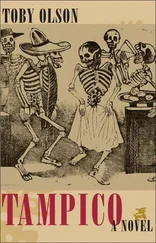When he had arrived, more than two years before, Will had earnestly planned to immerse himself in the arts, the museums, the theater, and great stacks literature, to become more cultured, even sophisticated. He imagined taking tours of the Louvre’s galleries and attending lectures at the Sorbonne. But, wearied from the tedious days at work, he had wound up spending his leisure time focusing only on the food, the wine, and the women. He had spent more time chatting up the owl-eyed girls with the straight gray skirts and bare legs he met browsing the shelves at Shakespeare & Company and Galignani than he did reading the actual books. In fact, he rarely got to the books. But it was hard to feel guilty about it when even the basest pleasures of Paris were so abundant and entirely elevating. Tonight, though, he did feel a slight pang of guilt for all the time he had wasted. He nodded and smiled along, feeling the shame of his ignorance as he quietly scraped the last mocha out of his pot de crème while his dinner companions chattered on about protosocialist revolutions and structural linguistics.
To Will’s relief, not only did all the intellectual conversation finally peter out, but, as the last cheese plate was picked clean and the table finally cleared, Oliver picked up the check too, with a reassuringly confident gesture indicating that he had it happily covered. Then, still laughing and chatting, the four of them crowded into a taxi and began a drunken, fruitless search for a mythical Latin Quarter jazz band. Oliver claimed to know the players in the band. “These cats are mad with talent! Their music is absolutely phosphorescent!” he kept shouting, though after many stops and drinks, it turned out the band wasn’t playing at any place they could find, nor had any of the various waitresses or bartenders ever heard of them. Eventually, the prettier girl yawned and peeled off, leaving polite farewell kisses on Will’s flushed cheeks. He wandered on with the other two as they eventually found their way to this secluded spot beneath the bridge on the Seine.
The last of the bottle of Drambuie that Oliver had bought off the last bartender had been finally drained dry and the Chesterfields were all ground dead into the stone. Will lay on the bench, listening to Oliver hum his little waltz to the girl as they danced along the gravel path. Gazing past them, across the water, Will watched a low barge slowly work its way up the river. To his sideways mind, the small glimmering gas lanterns on the boat’s sides seemed to be heading off to a rendezvous with the flickering stars above, their luminous sisters in the floating constellations.
The sound of the water against the barge’s bow reminded Will of being a young boy back home, standing on Jefferson Avenue, watching the massive gray cargo ships churn down the Detroit River on their way to the enormous and looming Rouge mills. Those vast, ugly ships, so large they seemed to barely fit bank to bank, were laden full of the raw, mined ore pulled from the Iron Range that would be forged and molded and stamped into the new industrial skin for the whole wide world. And what were these charming Parisian barges filled with? Sacks of grain for little baby lambs? Ground corn for pecking geese? Fresh-milled white wheat flour for warm morning croissants and baguettes? And why did he find the small boat so beautiful and romantic while those much larger ones were to his eyes only ugly and overbearing? Why do we love the little things so? Will grinned to himself. See, he thought, I can be philosophical. He drunkenly chuckled and his eyes flickered low as, one by one, a string of imaginary yellow ducks nimbly swam across the sea of his mind, each one kissing out puffs of vanishing smoke.
He awoke twisted up in his suit, as the dawn’s first flush was tinting pink, yellow, and orange off the clouds and glinting gold and bronze off the Paris rooftops. He sat up on the bench, rubbing his eyes and glancing around. Only here, he realized, could one wake like a vagrant and feel so lucky and blessed. The city was dappled in light, looking Impressionistic and wholly refreshed from its own nocturnal slumber. Checking his jacket to make sure he still had his wallet, he found a note scrawled onto the back of the dinner receipt: “Pricey dinner. We’ll sort it tonight. Meet me at 9 rue Git-le-Coeur at eight p.m. Be prompt. Ta, O.P.A.” He studied the note. Was Oliver saying that Will owed him for dinner? That didn’t seem right. What else did they need to sort out? Plus, there were a few other words scratched at the bottom that he couldn’t make out. Finally, studying the handwriting carefully, he deciphered it: “p.s. bring a knife.”
Most French men, like his father and uncles, were completely happy to leave the kitchen work to their wives. But Charles Vidot enjoyed cooking with Adèle. Their kitchenette space was tiny and cramped, but after ten years of patient practice they now moved about one another in what felt to him like a smoothly choreographed routine. She diced while he mixed, she poured while he simmered. All while he recounted the details of his days to her, and with this series of small, brisk movements, Charles Vidot was able to unwind from his life at work and reattach himself to the cozy and satisfying comforts of home. The radio was whistling out Debussy. “You see,” he said to her, “it seems Monsieur Vallet had a lover.”
“A lover,” she said.
He could not tell if she was merely repeating what he said or asking for more details. “Yes”—he put the pan on the burner and turned on the gas—“a lover who has utterly vanished, leaving nothing but the faintest trace of her scent on the pillow.”
Adèle smiled. “You smelled the pillow?”
“Well”—he smiled—“I would not be much of a detective if I had not.”
Adèle nodded. “And what did it smell like?”
Charles paused to think. “Citrus and jasmine … expensive.”
“So, perhaps whoever killed him also frightened his lover away.”
“Perhaps,” he said skeptically. He put the two chicken breasts on the skillet, letting them simmer with the garlic and the butter.
“But you suspect her?”
“Probably, yes. She is certainly the most interesting element in this case.” He told her about the girl’s garbage bin and the strange remnants he had discovered there.
“A few mouse bones spit from an owl do not necessarily make her a suspect,” said Adèle.
“That is quite true. And if she were present I am sure she could have provided a reasonable explanation. But she is not, so…”
There was so little room in the kitchenette that her waist slid against her husband’s as he shook the pan. He smiled at this, savoring the small satisfactions that fed their life together. He watched as she squeezed lemon onto a bowl of shredded carrots and placed them to the side. She gave him a small smile. Was it a remote smile? A hesitant one? He could not tell. She had been difficult to read as of late. “Have your headaches been back?”
“Yes, earlier this week,” she said, “but the new pills from the pharmacist seem to help.”
“Better than the tea?”
“I don’t know. Perhaps. The doctor tells me my tea recipe is merely an old wives’ tale.”
“Ah well, if it works, it works.” Charles leaned over and kissed her on the cheek. “I am glad I could come home early.” He had thought of staying at his office desk to peruse various notes on the case, there were interviews to comb through and the coroner’s statement to study, but he hated being in the station of late. A new chief of police for Paris, Maurice Papon, had recently been installed. In Vidot’s opinion, Papon was a thoroughly dishonorable man who, twenty years earlier, had stood out as one of the very worst of the Vichy collaborators. But history in France was a fickle thing, and as the nation healed from its great trauma, the powers that be had found a place for Papon. Once installed in his new office, this quisling had moved quickly, placing numerous other regrettable characters in various high positions throughout the department, including Vidot’s new superior at the station, a stout, lethargic toad of a creature named Maroc. As a detective, Vidot had encountered many disagreeable sorts, both criminal and civilian, and he liked to think he had a patient spirit and could tolerate any soul so long as they did not obstruct his path; but Maroc strained his patience. The man’s every expression insinuated either dishonesty or lethargy. Vidot found him nauseating and hated even being on the same city block with the man, and so this evening, after typing his case report in duplicate and leaving a copy in Maroc’s in-box, he locked up his files and made his way home.
Читать дальше












